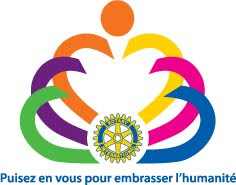
Rotary International and Gates Foundation together commit $200 million to eradicate polio - Press Release
EVANSTON, Ill., U.S.A. (Nov. 26, 2007) -- Rotary International today announced a partnership with the Bill & Melinda Gates Foundation that will inject a much-needed US$200 million into the global campaign to eradicate polio, a crippling and sometimes fatal disease that still paralyzes children in parts of Africa, Asia, and the Middle East and threatens children everywhere.
The Rotary Foundation has received a $100-million Gates Foundation grant, which Rotary will raise funds to match, dollar-for-dollar, over three years. The Evanston-based volunteer service organization will spend the initial $100 million within one year in direct support of immunization activities carried out by the Global Polio Eradication Initiative (GPEI), a partnership spearheaded by the World Health Organization (WHO), Rotary International, the U.S. Centers for Disease Control and Prevention, and UNICEF.
"The extraordinary dedication of Rotary members has played a critical role in bringing polio to the brink of eradication," says Bill Gates, cochair of the Bill & Melinda Gates Foundation. "Eradicating polio will be one of the most significant public health accomplishments in history, and we are committed to helping reach that goal."
The polio eradication grant is one of the largest challenge grants ever given by the Gates Foundation and the largest grant received by Rotary in its 102-year history. Polio eradication has been Rotary’s top priority since 1985. Since then, Rotary has contributed $633 million to the eradication effort.
"Rotary members worldwide have worked very hard over the years to reach this point, and it is rewarding to see our approach validated in such a significant way by the Bill & Melinda Gates Foundation," says Dr. Robert Scott, who leads Rotary’s polio eradication effort and chairs The Rotary Foundation, the not-for-profit charitable arm of Rotary that will administer the grant. "We hope that this shared commitment of Rotary and the Gates Foundation will challenge other donors – including foundations, governments and nongovernmental organizations – to step up and make sure we have the resources needed to rid the world of polio once and for all."
Adds Rotary International President Wilfrid J. Wilkinson: "This endorsement of Rotary's polio eradication efforts by the Bill & Melinda Gates Foundation is just the catalyst and challenge Rotary members need to keep our promise to the children of the world that polio will be eradicated."
Founded in Chicago in 1905, Rotary is a worldwide organization of business and professional leaders who provide humanitarian service and help to build goodwill and peace in the world. Rotary’s global membership is approximately 1.2 million men and women who belong to more than 32,000 Rotary clubs in more than 200 countries and geographical areas.








































